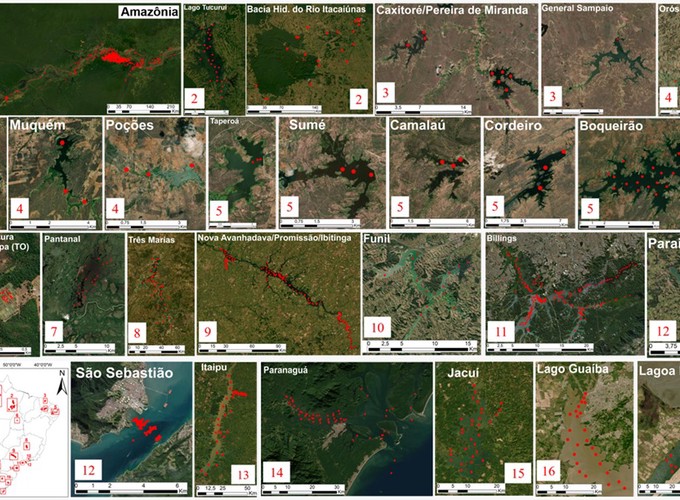Continental-Scale Water Quality Mapping in Brazil Using Remote Sensing, Artificial Intelligence, and Big Data – MAPAQUALI-AI (CNPq)
Brazil, with its vast area of 8.51 million km², faces significant challenges in managing its water resources, partly due to the uneven distribution of water relative to demand and, more recently, the increasing impact of droughts and extreme weather events. The Amazon, which holds the country’s largest water availability, cannot supply the demand of drier regions such as the Southeast. This situation is further aggravated by the expansion of irrigated areas and the growth of agribusiness, which, combined with prolonged droughts, threatens ecosystem sustainability and water quality. In 2020, the Laboratory of Aquatic Systems Instrumentation at INPE (https://www.dpi.inpe.br/labisa/) began developing the MAPAQUALI platform, a modular system for continuous satellite-based water quality mapping (https://bit.ly/47pdVqx). However, the platform remains a proof of concept, with algorithms applied to specific lakes and reservoirs on a limited temporal scale, requiring further development to expand its applications and become an operational tool. To address these challenges, this project proposes the development of MAPAQUALI-AI, an enhanced version of the MAPAQUALI platform focusing on artificial intelligence algorithms and large-scale applications for estimating water quality parameters. The platform will use satellite data from sources such as Sentinel-2 and Landsat-8/9 to generate time series of water quality maps, monitoring critical parameters such as chlorophyll-a, total suspended solids, and colored dissolved organic matter. Additionally, it will provide alerts on algal bloom events and other indicators of water quality degradation. The development will be carried out in four main phases:
- Data Collection and Processing: Incorporating water quality data and satellite imagery, organizing and integrating them with existing databases for model training and validation.
- Algorithm Development: Creating and calibrating machine learning/AI algorithms to estimate water quality parameters using in-situ data and satellite images.
- MAPAQUALI-AI Platform Development: Implementing and updating the platform for integration with the Brazil Data Cube infrastructure and optimizing data processing.
- Large-Scale Integration and Processing: Embedding the algorithms into the platform, enabling large-scale data processing and near-real-time product availability.
The MAPAQUALI-AI platform will enable more efficient and comprehensive water quality monitoring across Brazil, facilitating decision-making and contributing to the sustainable management of water resources. This project not only aims to overcome the limitations of current models but also seeks to establish a system that can be expanded and adapted to future needs, incorporating new sensors and algorithms as technology evolves.
